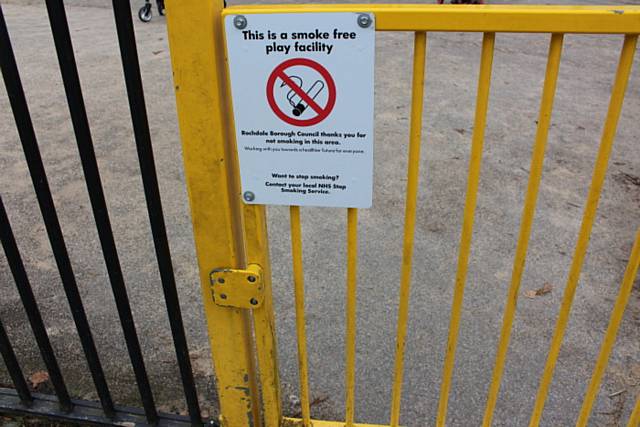Ten year Smokefree anniversary marked by dramatic decline in smoking across the North West
Date published: 30 June 2017

Ten year Smokefree anniversary marked by dramatic decline in smoking across the North West
The ten year anniversary of the Smokefree legislation introduced on 1 July 2007, which banned smoking inside bars, clubs, restaurants and other public and work places, has been marked with a dramatic steep decline in smoking rates across the North West. The last few years have seen the steepest drop in numbers, down from 21.1% in 2012 to 16.8% in 2016.
Duncan Selbie, Chief Executive of Public Health England, praised this phenomenal success and the huge benefits the legislations has brought – encouraging large numbers of smokers to quit and helping improve health among both ex-smokers and non-smokers alike:
"The Smokefree legislation has been extraordinary in the way we now experience and enjoy pubs, clubs, restaurants and so many other public places. Young people have not had to experience the smoke filled bars and clubs that once choked their parents and workers. They’ve grown up in a world where smoking is no longer socially acceptable.
“The law has played a key part in the huge cultural change we have seen in the past decade, especially among younger people, a change that has literally saved thousands from disabling chronic diseases and premature death.”
New figures from PHE show that the number of smokers aged 35 and over dying from heart disease in the North West has fallen significantly from 50.2 per 100,000 population in 2007-09 to 35.7 in 2013-15; while deaths from stroke have fallen from 15.1per 100,000 population in 2007-09 to 11.8 in 2013-15.
Commenting on the impact on societal attitudes over the past decade the Smokefree legislation has led to, Duncan Selbie said: “The Smokefree legacy has had a phenomenally positive impact on societal attitudes to smoking. And smokers have seized the opportunity by quitting in unprecedented numbers and, of those still smoking, half have chosen to smoke outside of their own homes to protect their families from secondhand smoke. The Smokefree legislation was undoubtedly the single most important public health reform in generations.”
The smoking indoor ban was the first, and the most important, in a series of ten pieces of tobacco legislation over ten years. Duncan Selbie said:
“We’ve seen cigarettes stubbed out in public places, become far less visible in shops and had large graphic warnings put on packs starkly explaining what these things do to the human body.”
Ten years, ten pieces of government action on tobacco:
1. Smokefree legislation – illegal to smoke in an enclosed public place (2007)
2. Increase in the legal age of sale of tobacco to 18 (2007)
3. Introduction of graphic health warnings on packs (2008)
4. Ban of sale of cigarettes in vending machines (2011)
5. Introduction of 2% above inflation tax on tobacco (2011)
6. Ban on display of tobacco in shops (2012/2015)
7. Offence for people to buy tobacco for under 18s (2014)
8. Ban of smoking in cars with under 18s present (2015)
9. Introduction of standard packaging (2016/17)
10. Introduction of minimum pack size (2016/17)
Commenting on the latest smoking figures, Duncan Selbie said: “The UK now has the second lowest smoking rates in Europe. However, while there is much to be positive about, large gaps still exist between the richest and poorest areas – with the highest rates over five times greater than the lowest.
“While these gaps persist there is still much work to be done, but these latest figures give us real hope. It’s now hard to believe that back in 1974 almost half of adults smoked. But now an end really is in sight and we have a real opportunity to virtually eliminate all the harm, misery and death caused by smoking.”
Do you have a story for us?
Let us know by emailing news@rochdaleonline.co.uk
All contact will be treated in confidence.
Most Viewed News Stories
To contact the Rochdale Online news desk, email news@rochdaleonline.co.uk or visit our news submission page.
To get the latest news on your desktop or mobile, follow Rochdale Online on Twitter and Facebook.

